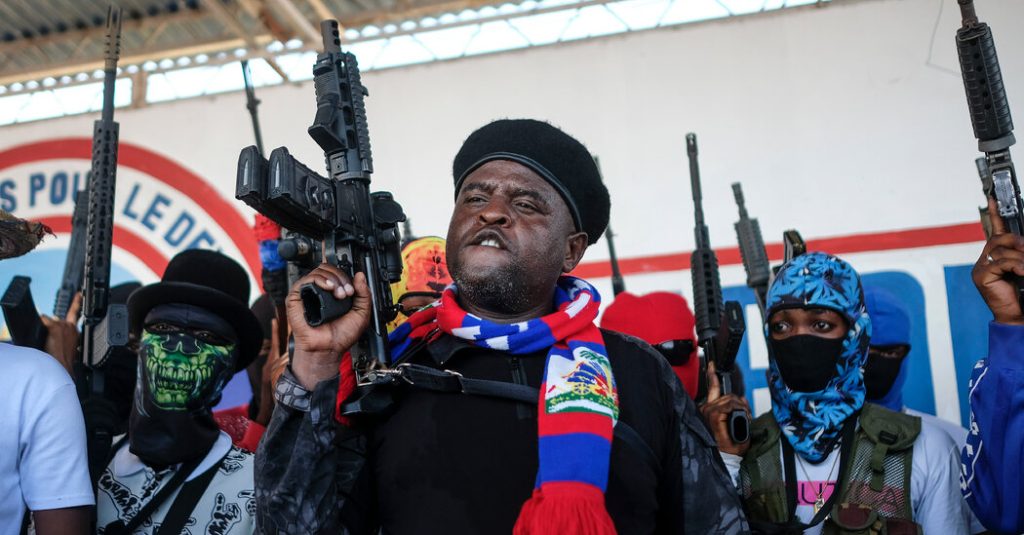Western diplomats and officials have expressed concerns about the influence and capabilities of Haitian gangs, especially in light of their suspected involvement in the assassination of Haiti’s president in 2021. These gangs have a stranglehold on the country’s infrastructure, have driven hundreds of thousands of people from the capital, and have connections to criminal activities like kidnapping, extortion, and drug trafficking. The presence of these gangs poses a significant challenge to the Kenyan-led multinational police force soon deploying to Haiti and the fragile transitional council working to pave the way for elections.
As the multinational police force prepares to deploy to Haiti, it faces a formidable adversary in the form of well-equipped, well-funded, well-trained, and unified gangs. Many of these gangs have become more autonomous in terms of their financial support, relying less on Haiti’s traditional sources of funding such as political figures and business elites. Some gangs have acquired automatic weapons and are showcasing a more militaristic and nationalistic posture, appearing less concerned with traditional turf wars and more focused on national ambitions.
Gangs in Haiti have been observed to have formed alliances, such as the Vivre Ensemble coalition, aimed at overcoming obstacles to their criminal operations. However, these alliances have also been prone to internal conflicts and power struggles, as seen with the collapse of the initial Vivre Ensemble alliance after a major theft of cocaine. Subsequent alliances have emerged, with gangs pledging to resist the incoming security force and staging acts of violence such as prison breaks and threats against the government.
Some gang leaders in Haiti, like Vitel’homme Innocent and Johnson André (Izo), have been linked to the assassination of President Moïse and are allegedly involved in drug trafficking. Intimidation, corruption, and connections to larger criminal organizations like Colombian cartels have also been reported. Former government officials, including security personnel, have been implicated in criminal activities, raising concerns about potential collusion between gangs and ex-officials.
Attempts to influence Haiti’s interim government, including proposals for immunity for gangs and previous government officials accused of corruption, have drawn criticism and raised concerns about worsening the situation in the country. Former President Michel Martelly, sanctioned by Canada for supporting local gangs, has denied allegations of involvement with gangs and interference in the transitional council. The volatile political and security situation in Haiti continues to be a significant challenge, exacerbated by the influence and activities of powerful gangs.
The ongoing crisis in Haiti, fueled by political instability, corruption, and the presence of powerful criminal gangs, poses a complex and urgent challenge for the international community and the efforts to restore stability and democracy in the country. The ability of these gangs to disrupt security, traffic drugs, and resist external intervention complicates the task of the multinational police force and the transitional council. Addressing the root causes of gang violence, corruption, and political discord will be critical in moving Haiti towards a more stable and secure future.


